Colic is an acute abdominal pain or a bad stomachache. If your horse seems uncomfortable, stretches out, turns and looks at its stomach or lies down and rolls and is reluctant to get up, you should call the doctor. Colic is serious. Don’t wait to see if the horse feels better in awhile. If you suspect colic, call immediately.

Frequently Asked Questions
I’ve heard a lot about colic. What is it, and how will I know if my horse has it?
My horse has diarrhea. Does that mean it has worms?
Parasites can often cause diarrhea, however there are many causes of diarrhea, if parasites are suspected, we recommend a stool sample and physical exam to determine what the problem is. A horse can go downhill very quickly with diarrhea.
Why does a horse need a rabies shot?
Horses are exposed to wild animals that carry rabies. Horses that spend any time in a pasture should be protected against rabies. The vaccine is fairly inexpensive and is given intramuscularly.
My mare is pregnant. Does she need any special vaccinations? When do we begin vaccinating the foal?
There is a form of Rhino that infects the pregnant uterus. The doctor recommends giving Pneumabort K Rhino shots at the fifth, seventh, and ninth months of pregnancy to prevent abortion. We recommend beginning a vaccine program on foals 4-6 months of age. Call our staff with any questions and we can help decide what is right for your horse.
My horse has a skin condition?
Ringworm, Rainrot, and Scratches are the most frequently seen skin conditions of horses. Ringworm is a fungal infection, not an actual worm. Horses are susceptible to this fungus just as dogs, cats and humans are. It is treated with antifungal medication. Rainrot is not caused by rain, but is actually a skin infection. Scratches is a term for Equine Pododermatitis. This condition causes scabs and crust on the cannon and pastern areas and sometimes the face. If you suspect any of these conditions, please call us. Early treatment is key as these conditions can become chronic.
What are common signs of colic?
Colic signs can vary greatly among horses so if you suspect your horse may be getting sick contact us immediately. However common symptoms can include but are not limited to: Rolling, inappetence, lethargy, kicking or biting at side, laying down, and drinking excessively or playing in water.
How do I know if my horse needs to be floated?
A veterinary examination is the only way to determine whether your horse needs to be floated. A full speculum exam under sedation is often the only way to completely evaluate your horse’s teeth. Some signs of dental disease are dropping balls of grass or hay, dropping feed, and stomping while eating grain. A power float is used at our clinic to perform equine dentistry.

